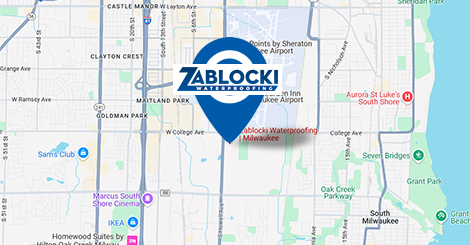Ask any homeowner and they will tell you – water is the enemy. Unaddressed moisture in a home leads to mold growth, which can be extremely hazardous to both the structural integrity of the house as well as the health of its occupants. The detrimental effects of water are made glaringly evident in the event of a flooded basement.
If you live in an area where flooding is likely, it is best to take certain precautions so that if a flood does hit your home, you will be able to mediate the issue ASAP. Items such as industrial water pumps can help keep the flooding at bay, but if the water level begins to rise to the height of your electrical systems, you will need to leave the premises immediately.
If your home’s basement has recently been affected by a flood, or you live in an area where flooding is probable, read on to discover what to do after a flood.
Call a professional
Mold growth is a threat that should not be taken lightly. Call a professional mold mitigator as soon as possible, as mold spores can begin to appear within 24 to 48 hours after a flood hits. This expert will likely first use a team to haul away any and all damaged appliances and shovel any sludge and debris that was brought in. Interior walls will also likely be taken down, as these are typically difficult to fully mitigate.
The expert will then use industrial-grade truck-mounted equipment to fumigate the area with a mold-killing fog that penetrates every single inch of the basement. They will also likely follow up with a hot water spray-down and a second-round fog blasting to ensure no mold spores are able to grow on basement walls or floors. This entire process can take a couple of days.
Contact your insurance
While the professional mold mitigator does their work, contact your homeowner’s insurance company to inform them of the flood damage. Your agent should be able to quickly file a claim and prepare for the subsequent repair work that will need to be factored into the rebuilding process. Some insurance companies may require you to use certain service providers for certain repairs, so be sure to contact your insurance company ASAP.
Prepare for major repairs
Major flooding is likely to have caused significant damage to the electrical, HVAC, and ductwork systems located in your basement. So, it will be important to contact the necessary contractors as soon as you can to arrange for replacement and repair work. Ductwork should be given special attention, as the mold mitigation process is less effective in air ducts, and mold spores can easily grow in these ducts if they are not properly cleaned or replaced.
Conduct minor repairs
While your home insurance should cover major items such as the electrical, HVAC, and ductwork that needs to be addressed, there are likely some items that will not be covered. For example, while insurance may cover the cost of replacement materials for broken windows or entryways, they may not cover the labor costs to completely finish these repairs. If you are adept in the art of DIY, you can do some of this work on your own. If you aren’t handy, then prepare to make a call to a contractor or trusted handyman.
Guard your basement against future flooding
Basement waterproofing is one of the best investments you can make in the safety and longevity of your home. At Zablocki Waterproofing, we help homeowners across the Milwaukee region with expert basement waterproofing and foundation repair services. We will conduct a thorough assessment of the waterproofing needs of your home, make a recommendation, and conduct all work to ensure you never have to deal with significant flood damage again. Give us a call to get started today.
Floods can be a stressful situation, especially for the unprepared. By hiring an expert basement waterproofer, having adequate insurance, and knowing who to call quickly in an emergency, your home’s basement will be back to its regular dry self in no time.






